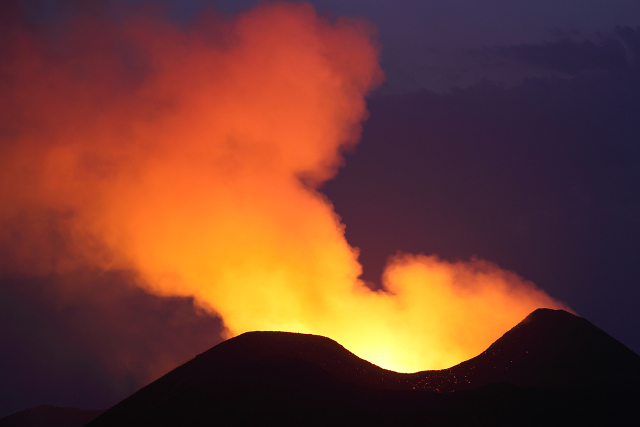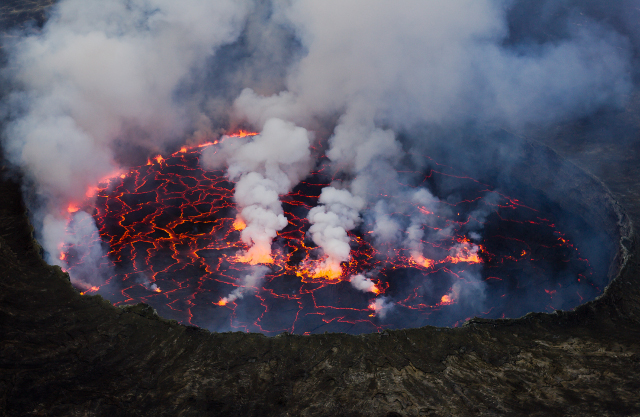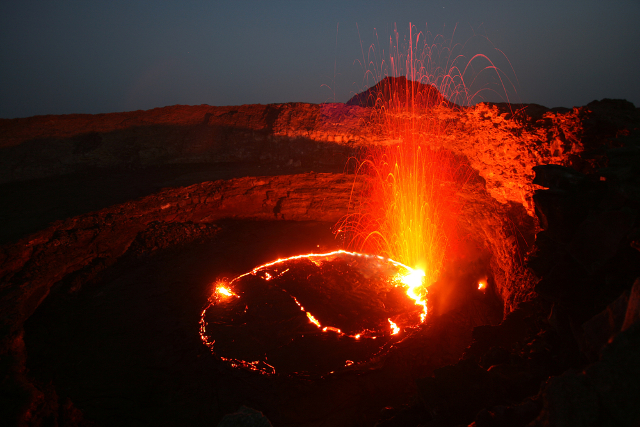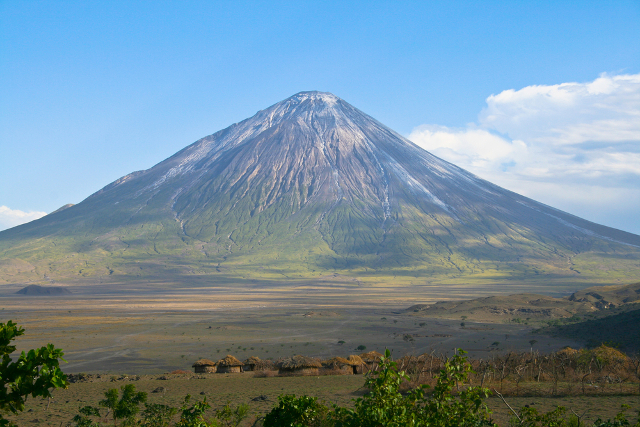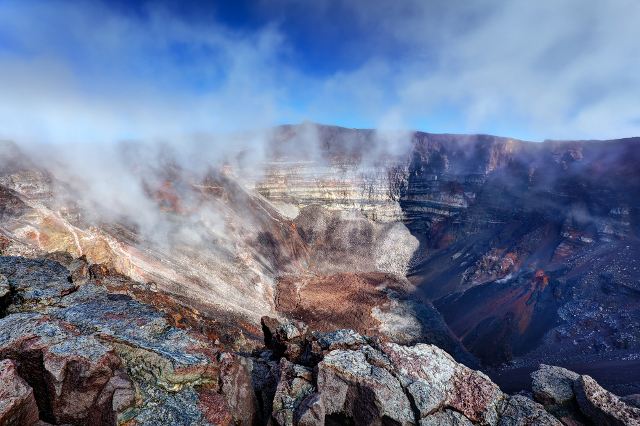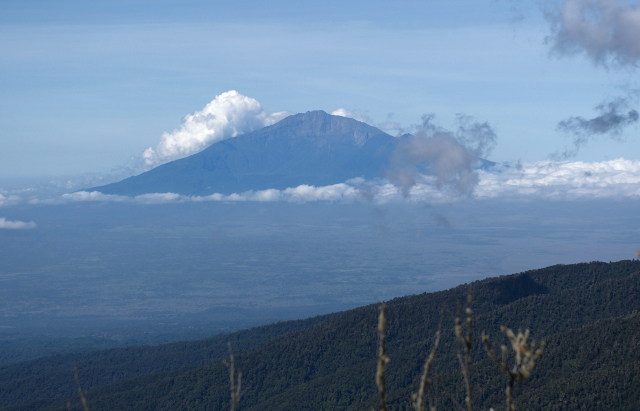African volcanoes can be found all across the continent and its islands, from the west coast of Cameroon to the highlands of Mauritius. These majestic peaks range from barely over 2,000 ft high (609 m) to a prodigious 14,000 ft (4260 m). Among them are some of the most active volcanoes in the world, which serve as reminders that though the continent of Africa is ancient, from a geological perspective it is still young and being formed in front of our eyes.

Courtesy of jbdodane/flickr
1. Mount Cameroon, Cameroon
With a 13,000 foot peak, Mount Cameroon is an active volcano that looms over the surrounding countryside. The most recent eruption was in 2012. In 1999 an eruption produced lava flow that blocked off traffic on a nearby highway by the ocean. This famous volcano has also been the subject of history and literature. In the 5th century BC, Carthaginian Hanno the Navigator is said to have observed the majestic peak. More recently, Mary Kingsley wrote about her climb of the mountain in her book Travels in West Africa.
2. Mt. Nyamuragira, DRC
Mt. Nyamuragira has erupted more than 40 times in the last 150 years and is one of the most active volcanoes in Africa. Recent eruptions occurred in 2010 and 2012. The 2010 eruption threatened rare chimpanzees in the adjacent forest.
3. Mt. Nyiragongo, DRC
Located in the Virunga Mountains, Mount Nyiragongo sits at an elevation over 11,000 ft. The massive main crater has a lava lake that is almost 2km wide. The volume of lava in the lake varies depending on eruption patterns.
4. Erta Ale, Ethiopia
Tucked deep in the Afar Region of Ethiopia, Erta Ale sits at a low elevation but is constantly active. This volcano has one of the world’s oldest lava lakes — its existence has been documented since the beginning of the 20th century.
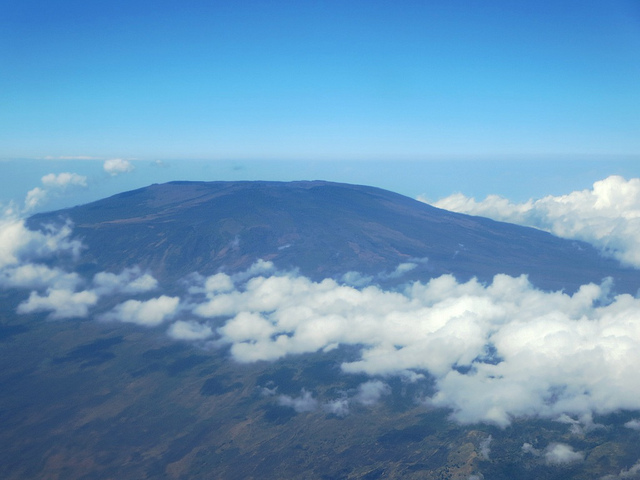
Courtesy of David Stanley/flickr
5. Karthala, Comoros Islands
Mount Karthala is the highest point in the Comoros Islands, reaching an elevation of 7,746 ft. The volcano has erupted 20 times since the 19th century. An eruption in 2005 led to the evacuation of several thousand local residents.
6. Ol Doinyo Lengai, Tanzania
Seemingly rising out of nowhere, Ol Doinyo means “mountain of god” in the Maasai language. And for good reason: this towering mountain rises 10,000 ft above sea level. The last major eruption occurred in 2008, but lava flows remain active.
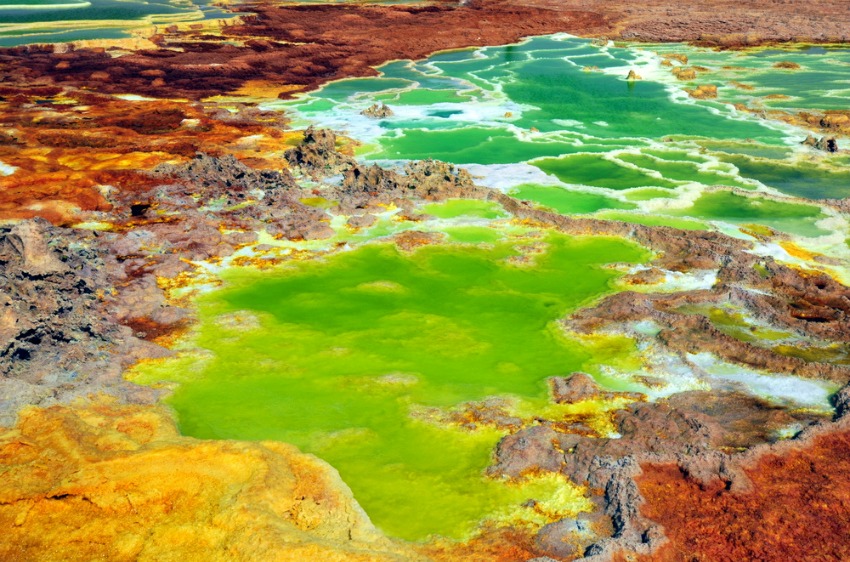
Dallol, Danakil depression, Ethiopia (Shutterstock)
7. Dallol, Ethiopia
Dallol is not your conventional mountain volcano with a crater at the peak. It’s more of a raised area within the vast geologic depression known as Danakil, which is one of the hottest and most remote places in Africa. Dallol’s last eruption was in 1926, but since then the area has been characterized by roiling geothermal activity such as hot springs, sulphur vents, salt deposits, fairy chimneys, and gas geysers, indicating that the earth below is still in flux.
8. Piton de la Fournaise, Reunion Island
Located on the eastern side of Reunion Island, Piton de la Fournaise is one of the most active volcanoes in the world. The volcano is over 500,000 years old and recorded an eruption as powerful as that which rocked Mount St. Helens in 1980.
9. Mount Meru, Tanzania
Soaring to a height of over 14,000 ft, Mount Meru is often visible from nearby Mount Kilimanjaro. The peak is located in Arusha National Park, and is easily accessible from Arusha town.
10. Mount Longonot, Kenya
Interestingly for a volcano, Mount Longonot is teeming with wildlife including giraffes, zebras, and leopards. An almost 2km crater caps the top of the volcano. The last eruption is reported to have occurred in the 1860’s.
Related content on AFKTravel:
12 Most Recently Active Volcanoes In Africa
VIDEO: Ethiopia’s Erta Ale Volcano
Tiny Country, Big Experiences: 15 Things To Do In Rwanda
Want to discover the finer side of Africa? Sign up for our weekly newsletter.
